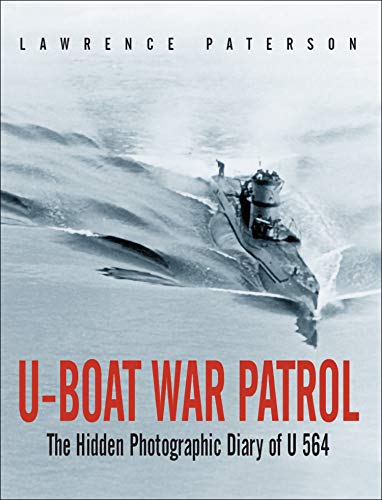
U-Boat Wars Volume 1
by Richard Baughman
"World War 2 Album"
Popularity
0.36 / 5
* A book's popularity is determined by how it compares to all other books on this website.
Where to buy?
Buy from Amazon* If you buy this book through the link above, we may receive a small commission at no extra cost to you.
U-Boat Wars Volume 1 by Richard Baughman
Details
War:
World War II
Perspective:
Submarines
Military Unit:
Kriegsmarine
True Story:
Yes
Biography:
No
Region:
Europe
Page Count:
142
Published Date:
2016
ISBN13:
9781576385036
Description
Brief Summary
U-Boat Wars Volume 1 by Richard Baughman is a compelling visual journey into the perilous world of German U-boats during World War II. The book predominantly features a collection of rare photographs taken by the renowned U-boat commander Herbert Werner. These images, many of which have never been seen by the public, capture the stark and often brutal realities of life aboard a U-boat. Alongside these photographs, the book offers insights into the experiences of U-boat crews who faced the constant threat of enemy attack, fully aware they might become entombed in their steel vessels.
Main Themes and Topics
The primary theme of U-Boat Wars Volume 1 is the harsh and hazardous reality faced by German U-boat crews during World War II. The book highlights the psychological and physical challenges encountered by these submariners, underscored by the ever-present danger of being destroyed by enemy forces. Through Werner's lens, readers gain an understanding of life in these "iron coffins," a term Werner himself famously used to describe the potentially deadly nature of U-boats. The collection vividly communicates the somber reality of the U-boat war, famously referred to by Werner as "one long funeral procession."
Writing Style and Tone
Richard Baughman adopts a factual and evocative style that complements the visual narratives provided by Herbert Werner's photographs. The tone is respectful and reflective, allowing the images and minimal text to convey the solemnity and gravity of the U-boat experience. The book relies heavily on the photographs to tell the story, with accompanying descriptions that provide the necessary context and enhance the reader's understanding of the visual content.
Criticism
While the book is a valuable visual record, some readers might feel that it lacks comprehensive textual content or analytical commentary that could further contextualize the photographs within the broader scope of World War II history. Additionally, individuals seeking detailed strategic or operational analyses of U-boat warfare may find the book's focus on personal and visual narratives less fulfilling. However, for those interested in a more visceral and immediate portrayal of life aboard a U-boat, Werner’s photographs are profoundly impactful.









